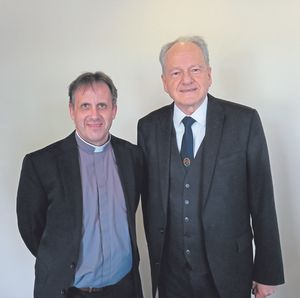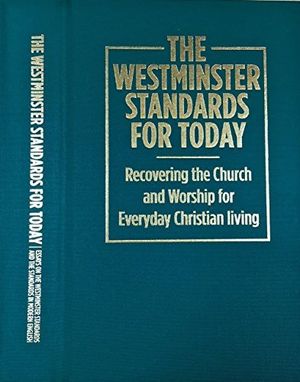The first saying of Jesus on the cross is found in Luke 23:34. In effect, it is a prayer of intercession. ‘Father, forgive them, for they do not know what they do’. The concern of the prayer is the forgiveness of the perpetrators of his crucifixion.
While it stresses the importance of prayer, it also emphasises the priority of forgiveness in the experience of fallen sinners.
In a real sense this is the great concern of life for anyone — that they might have forgiveness from God. What awareness can a person have of the gravity of sin if he or she does not recognise a need for forgiveness?
Our plight? We are desperate hell-deserving sinners by nature. Our need? It is for forgiveness from our Maker. This is Jesus’ first ‘word’ from the cross: ‘Father, forgive them’.
The need for forgiveness
The reason we need forgiveness is readily to hand. We are fallen, sinful people. In our sin we stand condemned.
This is highlighted in Jesus’ word: ‘for they do not know what they do’. These crucifiers are ignorant of what they are doing. What are they doing? They are putting to death the perfect Son of God, no less.
Does such ignorance make things better? Are they less guilty because of it? The answer to that must be: No!

Take a person who is going along in their car. They take a left turn along a side-road. But they have failed to notice the sign that says, ‘No Entry’. A car comes the other way. It is a police car.
What do you say? ‘Sorry, officer, I didn’t see the sign’. But that makes no real difference. You have committed an offence and ignorance is no excuse.
In relation to God and truth people are by nature ignorant. They do not fully grasp who Christ is or the significance of what he has done.
They do not even know what they are themselves as sinners standing under condemnation for their sins. Blinded by sin and Satan, people are ignorant of the real issues of life, and consequently unaware of the need for forgiveness.
They are ignorant, but culpable for all that. These people of Christ’s day had witnessed his actions and heard at least some of his teaching. They were inexcusable. All the more so, as they had the ‘oracles of God’ and did not recognise him as the promised Messiah.
What a dangerous condition it is, to be ignorant of Christ and truth — and one’s own heart! The greatest concern for people, if they would but see it, is the need for forgiveness. The first ‘word’ emphasises this priority.
How is forgiveness possible?
Jesus prays: ‘Father, forgive them…’ But how can sinners be forgiven at all? They cannot earn forgiveness. How, then, is it possible?
It is significant that this is the first ‘word’ from the cross. Not only because it is clearly a priority for mankind, but also because it was through the cross that forgiveness for sinners became possible.
It was on the cross that the Son of God paid the penalty for sin. It was at the cross that the price was paid by his death for the forgiveness of all who will trust in him as Saviour.
There he was bearing the wrath and curse of God against his people’s sin, in his own body. Here, therefore, the basis for forgiveness was wrought: ‘In our place condemned he stood’. It was through the cross that the Father could forgive sinners.
Think of a person rightly convicted of a capital crime. He must pay the penalty for that crime. An earthly judge will be faced with a choice. Either the full penalty of the law must be meted out, or for some reason it may be set aside.

The first choice is strict justice; the second is mercy. To have both working together would require someone to suffer in the place of the condemned man.
This is the issue in the gospel, and in the forgiveness of the sinner — one innocent Man suffering and being condemned in the place of others. God the Father cannot set aside the demands of strict justice (‘The soul who sins shall die’) unless there be a substitute to take the place of the sinner.
That substitute must be God in our nature and ‘without blemish’. This essentially is the meaning of the cross. That is where forgiveness was wrought for sinners.
As Paul writes to the Ephesians: ‘In him we have redemption, through his blood, the forgiveness of sins, according to the riches of his grace’ (1:7).
The experience of forgiveness
The need for forgiveness, then, is a priority for all, because of sin. But what of the sinner’s experience of forgiveness? How does that happen?
What would happen in the lives of those men who put Jesus to death if they were to be forgiven by the Father?
In the first instance the sinner, coming under conviction or sin, will come to Christ for salvation. He or she will have deep sorrow for sin and seek to forsake it and cry out for mercy to God.
This cry for mercy will recognise dependence upon the work of Christ. Such a soul will be found trusting in the Lord.
We are told in Scripture that ‘the blood of Jesus Christ cleanses us from all sin’ (1 John 1:7). We are also told that ‘if we confess our sins, he is faithful and just to forgive us our sins and to cleanse us from all unrighteousness’ (1 John 1:9).
This is the way of forgiveness, experientially. The saved man or woman is now in Christ and therefore no condemnation rests upon them (Romans 8:1).

Does this make the one forgiven careless about sin, then? Certainly not! The saved soul is under obligation to seek holiness, and in seeking holiness will ‘die to sin’ constantly.
Being forgiving
Forgiveness is for penitent souls. However, proof of having been forgiven will be seen in that person himself or herself evidencing a forgiving spirit. This is an attitude clearly exemplified by the Lord here.
There is a passage in Luke 17:1-4 about forgiveness. ‘Take heed to yourselves’, says the Lord. ‘If your brother sins against you, rebuke him; and if he repents, forgive him. And if he sins against you seven times in a day, and seven times in a day returns to you, saying “I repent,” you shall forgive him’.
This is precisely how it must be among men. It is also how it is between man and God. There must always be a forgiving spirit. But the context of forgiveness itself is always sorrow for sins.
How crucial a matter this is in experiential biblical religion is clear in the Sermon on the Mount: ‘if you forgive men their trespasses, your heavenly Father will also forgive you. But if you do not forgive men their trespasses, neither will your Father forgive your trespasses’ (Matthew 6:14-15).
Did these men for whom Jesus prayed really experience forgiveness? Surely they were among those who on the day of Pentecost submitted their lives to Christ in repentance and saving faith (Acts 2:38-42).
The sinner needs forgiveness. Therefore the sinner needs to repent and trust in Christ. There is an offer of forgiveness through the Lord’s work on the cross. In their turn, forgiven saved souls must show a forgiving spirit.
If the Lord has forgiven them so much, they also must be ready to forgive all who come sorrowing over offences and seeking to be forgiven. They will do so in the spirit of their Saviour who prayed: ‘Father, forgive them, for they do not know what they do’.






















